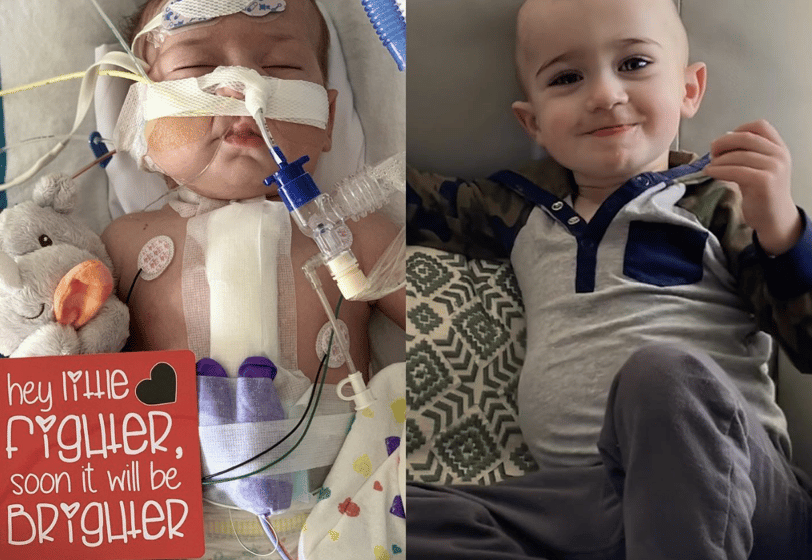How to Cope When Your Child Has Congenital Heart Defects (CHD)
Explore the journey of a children's author dedicated to raising awareness about congenital heart defects. Discover coping strategies that help parents deal with having a child with CHD. Join us in spreading knowledge and support for families affected by these challenges.
1/12/20253 min read


Learning that your child has a congenital heart defect (CHD) can be one of the most overwhelming moments of a parent’s life. The emotions can range from fear and uncertainty to determination and hope. While the journey may seem daunting, it’s important to know you’re not alone, and there are ways to navigate this path with strength and resilience. Here are some strategies to help you cope and care for your child while maintaining your well-being.
1. Acknowledge Your Emotions
It’s natural to feel a mix of emotions when your child is diagnosed with CHD. From sadness and fear to anger and guilt, these feelings are valid. Allow yourself the space to process your emotions without judgment. Talking to a trusted friend, family member, or counselor can help you work through these feelings and find strength in the face of uncertainty.
2. Educate Yourself
Understanding your child’s condition can empower you and reduce feelings of helplessness. Ask your child’s medical team questions and seek reputable resources to learn about CHD and the treatments available. Knowledge equips you to make informed decisions and advocate for your child effectively.
Key Areas to Learn About:
Your child’s specific CHD diagnosis.
Treatment options and potential outcomes.
How to manage your child’s care at home and during recovery.
3. Build a Support System
You don’t have to go through this journey alone. Lean on family and friends for emotional and practical support. Additionally, connecting with other parents of children with CHD can provide comfort and insight. These individuals understand what you’re going through and can share experiences, advice, and encouragement.
Ways to Find Support:
Join CHD parent support groups, both in-person and online.
Participate in community events or fundraisers for CHD awareness.
Seek out local or national organizations dedicated to CHD.
4. Advocate for Your Child
You are your child’s strongest advocate. Attend all medical appointments, ask questions, and ensure you fully understand the treatment plan. Take notes, keep a folder of medical records, and don’t hesitate to get a second opinion if you feel it’s needed. Your proactive approach can make a significant difference in your child’s care and recovery.
5. Practice Self-Care
Caring for a child with CHD can be physically and emotionally demanding. While your focus may naturally gravitate toward your child, it’s crucial to prioritize your well-being too. Remember, you can’t pour from an empty cup.
Self-Care Ideas:
Take breaks when needed, even if it’s just for a short walk or a moment of quiet reflection.
Seek counseling or therapy to manage stress and emotions.
Maintain healthy eating, exercise, and sleep habits to sustain your energy.
6. Celebrate Small Victories
The CHD journey is filled with milestones—some small, some significant. Celebrate each step forward, whether it’s a successful surgery, a good doctor’s report, or a day of laughter and play with your child. These moments remind you of the strength and resilience your child possesses and keep hope alive.
7. Embrace the Power of Community
Many families find solace in giving back or becoming part of the CHD community. Whether it’s raising awareness, participating in fundraisers, or simply sharing your story, connecting with others can provide a sense of purpose and hope.
Ways to Get Involved:
Support CHD research through donations or volunteering.
Share your family’s journey to inspire others.
Advocate for policies and resources that benefit children with CHD.
8. Focus on Hope
While CHD comes with challenges, it’s important to remember that medical advancements have significantly improved outcomes for children with heart defects. Many children with CHD go on to lead full, active lives. Focusing on the possibilities and seeking moments of joy can help you stay positive.
Coping with your child’s CHD diagnosis is a journey that requires strength, patience, and love. By educating yourself, building a support system, and prioritizing self-care, you can face the challenges ahead with confidence. Remember, you’re not alone—there is a community of families, caregivers, and medical professionals ready to support you and your child every step of the way.
